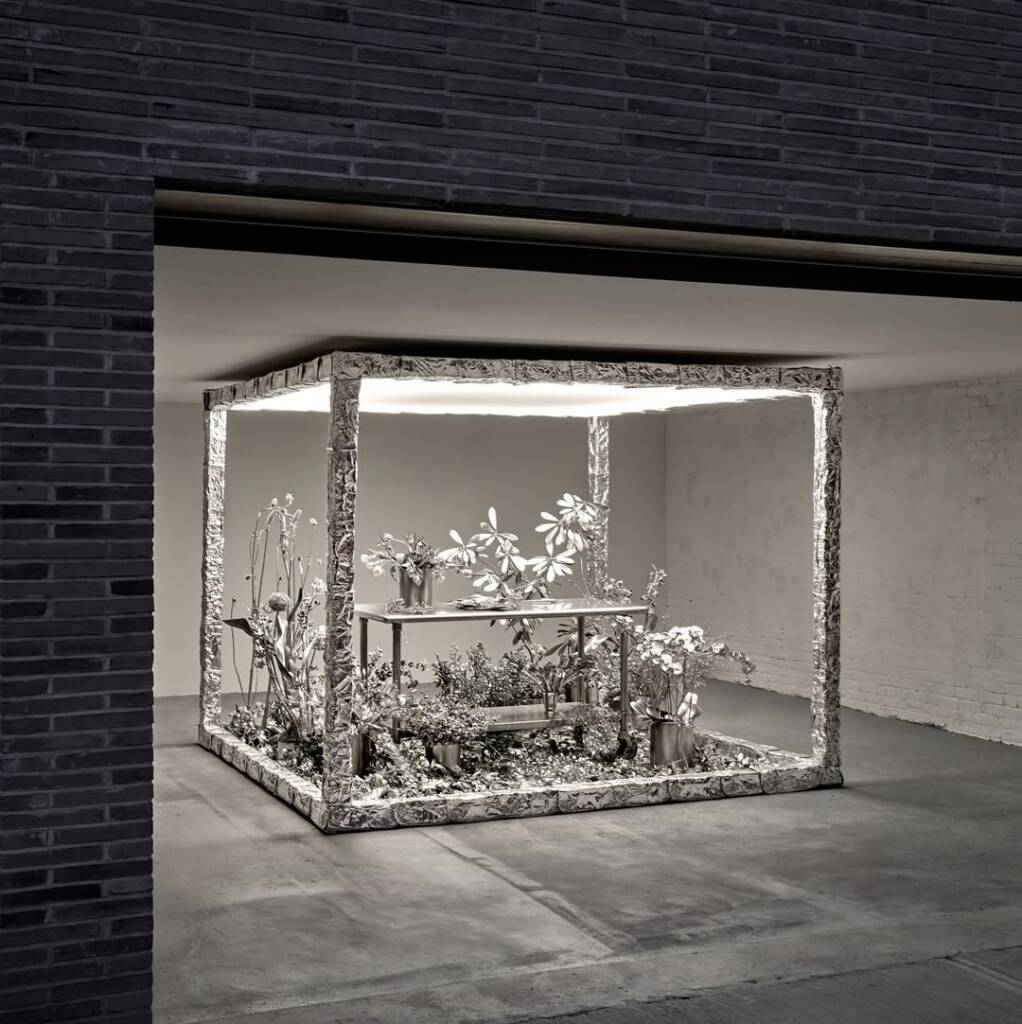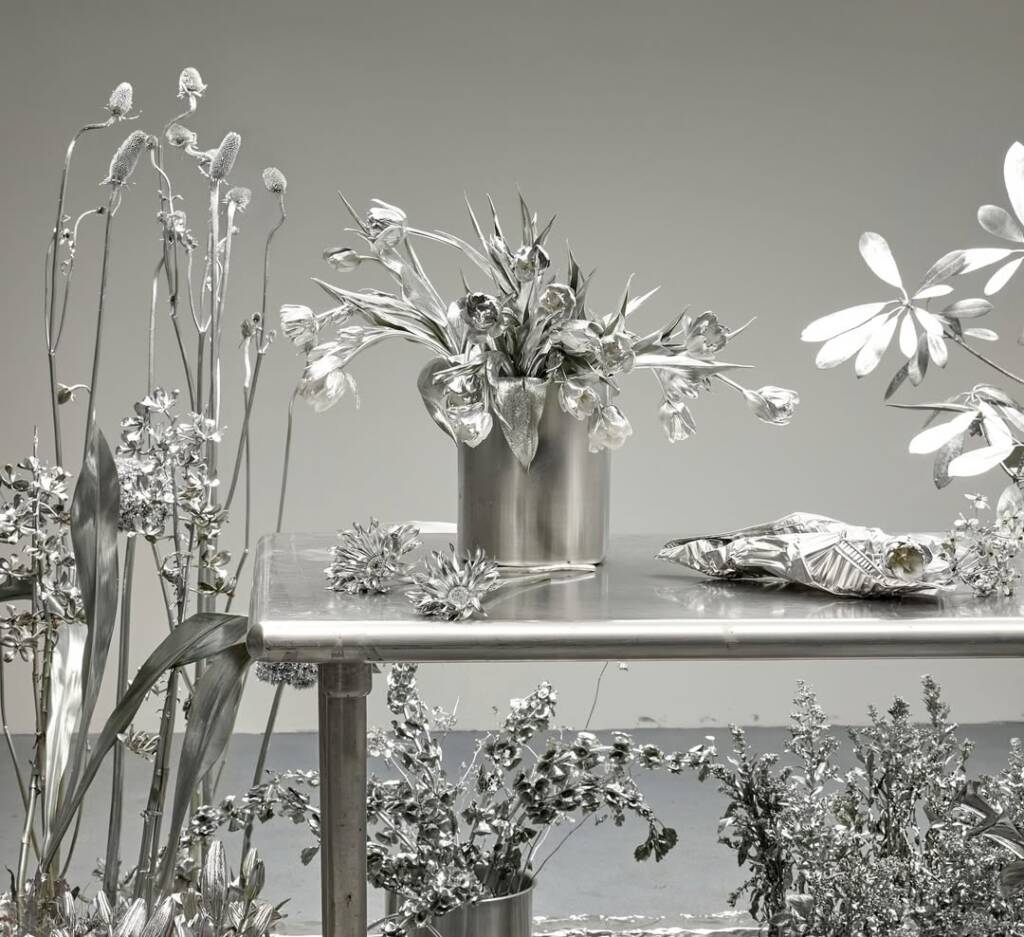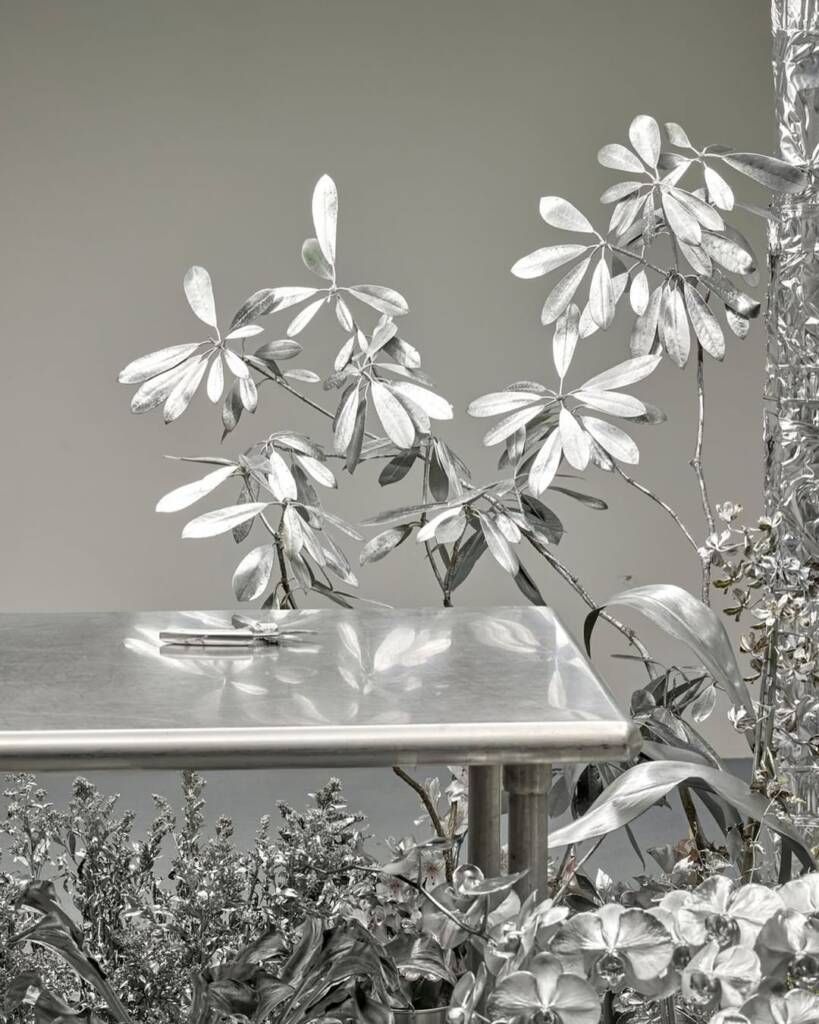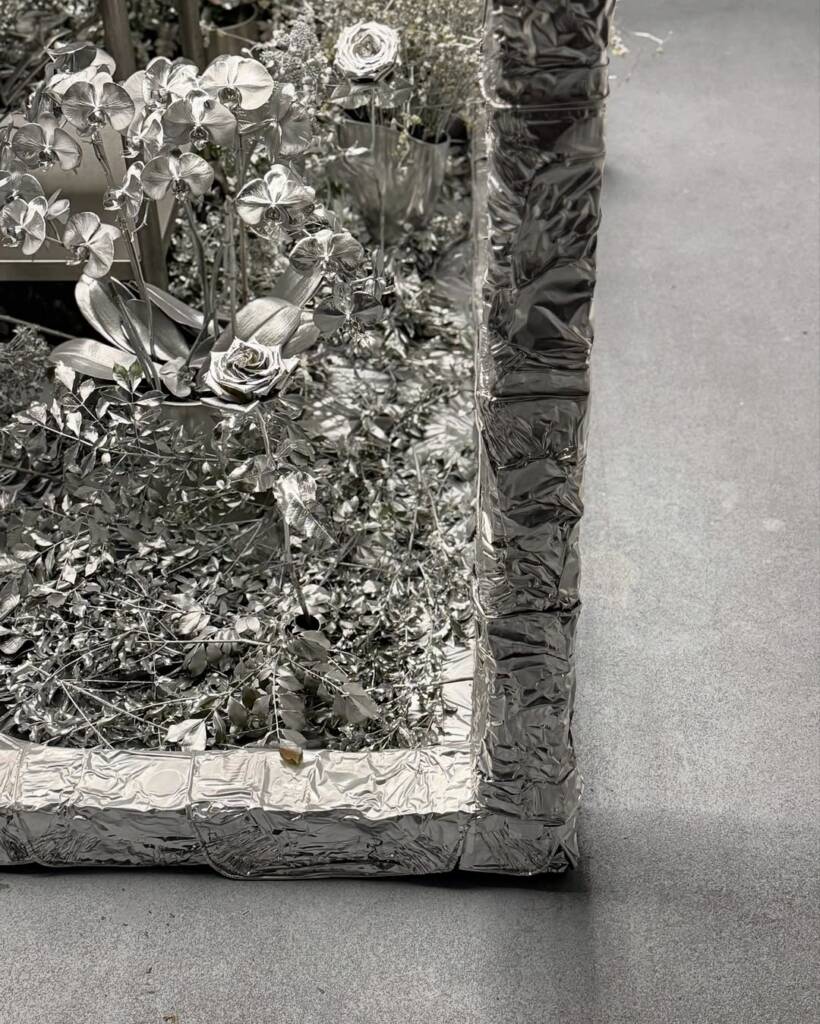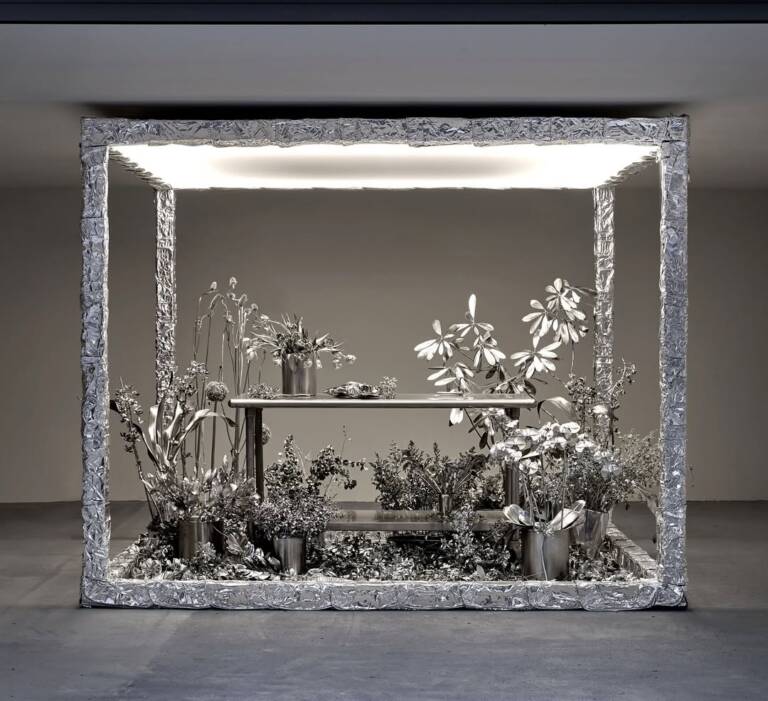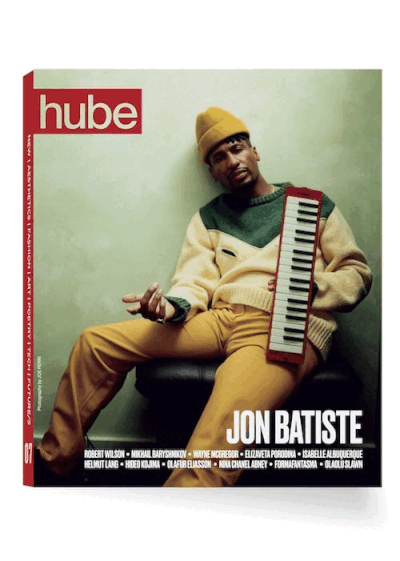In a striking one-night-only installation, Flower Room brought together the experimental vision of Harry Nuriev of Crosby Studios and the botanical artistry of floral design studio FLOVER. Staged inside a private townhouse recently designed by Nuriev’s studio for Compass, this immersive experience explored the intersection of industrial design and floral composition, turning an ordinary domestic space into a silver-toned meditation on creation, decay, and beauty.
Floral composition as creative residue
At the heart of Flower Room stood a sculptural silver capsule, crafted entirely from aluminum barbecue trays—Nuriev’s signature material first introduced in his Paris gallery. Inside this futuristic shell, the space was alive with discarded petals, unfinished bouquets, and loose blooms. A central worktable, frozen mid-process, invited visitors into an atmosphere of ephemeral creativity—where floristry’s overlooked remnants were elevated to architectural importance.
FLOVER’s approach to floral composition embraced the in-between and the imperfect. Instead of traditional arrangements, the studio highlighted the byproducts of bouquet-making—leaf fragments, loose stems, and wilting petals—merging them seamlessly with the capsule’s metallic surfaces. The result was a surreal, textural space where construction and deconstruction danced in tandem.
A glimpse into the Harry Nuriev design philosophy
The installation offered more than aesthetic delight—it was a direct expression of Harry Nuriev’s design ethos, which often involves repurposing industrial materials into poetic objects. The silver capsule, both object and architecture, functioned as a “creative laboratory” suspended in time. It was a place where the roughness of aluminum met the fragility of flowers, and where creative residue was not discarded, but displayed.
Through this installation, Nuriev and FLOVER challenged conventional ideas of what an interior can be, blurring boundaries between furniture, floristry, sculpture, and set design. Though open to the public for only one evening, Flower Room welcomed over 230 artists, designers, and local creatives, affirming its place as a quiet but powerful moment in contemporary design practice.
